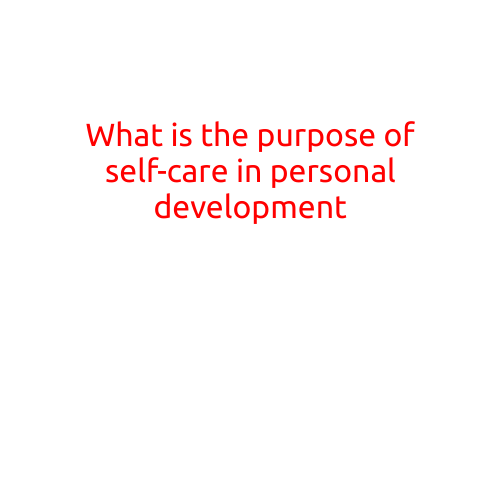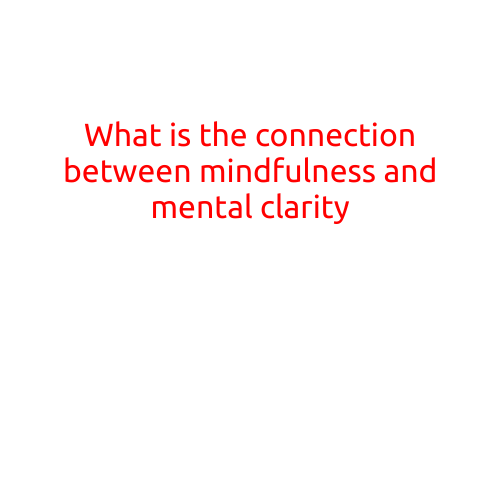
What is the Purpose of Self-Care in Personal Development?
In recent years, self-care has become a buzzword in the world of personal development and wellness. Everyone from celebrities to mental health professionals is touting the importance of incorporating self-care into daily life. But what is the purpose of self-care, and why is it so crucial for our personal growth and development?
What is Self-Care?
Before diving into the purpose of self-care, it’s essential to understand what it means. Self-care is the practice of taking care of one’s physical, emotional, and mental well-being. It involves engaging in activities that nurture and replenish our resources, allowing us to feel refreshed, renewed, and revitalized.
Self-care is not a one-size-fits-all approach. It can take many forms, such as:
- Engaging in regular exercise or yoga
- Practicing mindfulness or meditation
- Reading a book or taking a relaxing bath
- Spending time in nature or with loved ones
- Setting healthy boundaries or saying “no” when necessary
The Purpose of Self-Care in Personal Development
So, why is self-care so important for personal development? The answer lies in its ability to:
- Reduce Stress and Burnout: Self-care helps to mitigate the negative effects of stress and burnout, which can lead to feelings of exhaustion, anxiety, and depression. By prioritizing self-care, individuals can reduce their risk of experiencing these debilitating conditions.
- Improve Mental Clarity and Focus: Self-care practices such as meditation and mindfulness can improve cognitive function, leading to better concentration, memory, and problem-solving skills.
- Enhance Emotional Intelligence: Self-care helps individuals develop a greater awareness of their emotions, allowing them to better understand and manage their feelings. This increased emotional intelligence can lead to stronger relationships and improved decision-making.
- Boost Confidence and Self-Esteem: Self-care activities such as journaling and creative pursuits can increase feelings of self-worth and self-acceptance, leading to higher confidence and self-esteem.
- Foster Resilience: By prioritizing self-care, individuals can develop a greater sense of resilience, enabling them to better cope with challenges and setbacks.
- Promote Personal Growth and Development: Self-care is not a selfish act; it’s an essential step in personal growth and development. By prioritizing our own well-being, we can increase our capacity for learning, growth, and self-improvement.
- Model Healthy Habits for Others: When we prioritize self-care, we set a positive example for others, encouraging them to do the same. This can create a ripple effect of kindness, compassion, and empathy in our communities.
Conclusion
Incorporating self-care into your personal development routine may seem like a luxury, but it’s essential for maintaining overall well-being and achieving your goals. By prioritizing self-care, you’ll be able to:
- Reduce stress and burnout
- Improve mental clarity and focus
- Enhance emotional intelligence
- Boost confidence and self-esteem
- Foster resilience
- Promote personal growth and development
- Model healthy habits for others
Remember, self-care is not a one-time activity; it’s a lifelong practice. By incorporating self-care into your daily routine, you’ll be better equipped to navigate life’s challenges, achieve your goals, and live a more fulfilling, purpose-driven life.





